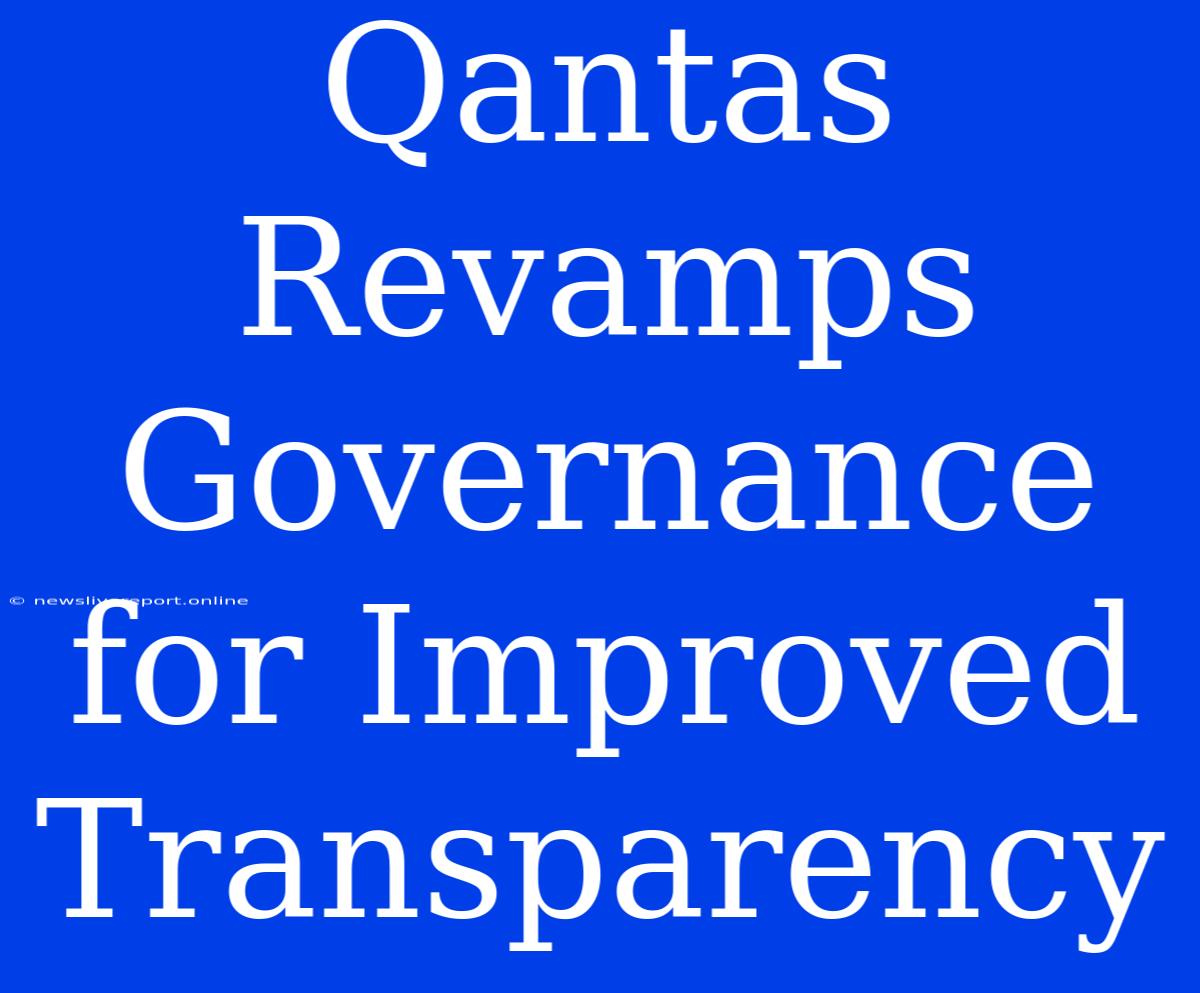Qantas Revamps Governance for Improved Transparency: A New Era of Accountability?
Qantas Airways, Australia's flag carrier, is making significant strides towards greater transparency and accountability with its recent overhaul of its corporate governance structure. This move comes amidst increasing scrutiny from stakeholders and the public regarding the airline's past performance and decision-making.
Here's what's new:
- Independent Chair: The most notable change is the introduction of an independent chair, replacing the previously combined role of chairman and CEO. This separation aims to ensure greater objectivity and oversight of the company's operations.
- Board Composition: The board of directors has been restructured to include a greater number of independent directors with diverse backgrounds and expertise. This move aims to broaden the range of perspectives and experience brought to decision-making.
- Enhanced Risk Management: Qantas has implemented new risk management frameworks, focusing on proactive identification and mitigation of potential issues. This is a key step in ensuring the airline is better prepared to handle future challenges.
- Transparency in Reporting: The airline has pledged to improve its reporting processes, providing more detailed and timely information to stakeholders about its performance and financial standing.
What does this mean for Qantas?
This revamped governance structure signifies a commitment to greater transparency and accountability. By embracing these changes, Qantas aims to:
- Regain trust: Following a period of public criticism, these reforms are designed to restore trust among stakeholders and demonstrate a renewed commitment to good governance.
- Improve performance: By strengthening oversight and risk management, Qantas hopes to improve its operational efficiency and financial performance.
- Attract and retain talent: A strong and transparent corporate governance framework can attract and retain top talent, contributing to a more robust and competitive workforce.
The Road Ahead:
While these changes represent a positive step, it's crucial to evaluate their long-term effectiveness. The success of these reforms will depend on:
- Effective implementation: Implementing the new governance framework requires commitment from all levels of the organization.
- Continuous improvement: The process of governance is not static. Qantas must remain vigilant in identifying areas for improvement and adapting to evolving best practices.
- Open communication: Transparent and consistent communication with stakeholders is essential to build trust and ensure accountability.
This overhaul of Qantas' governance structure marks a significant shift for the airline. Only time will tell whether these reforms will successfully address concerns and pave the way for a new era of transparency and accountability for the company.

